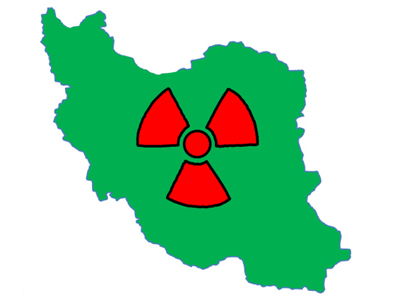 Much commentary about the impending talks with Iran on its nuclear program brings to mind Pogo Possum’s comment that we have met the enemy and he is us. Among the impediments to success on both sides of this negotiation, some of the most prominent ones are on our side. Remarkably, this has been noted by some who could never be accused of being soft on Iran. But the impediments are simply treated as a given, and as a reason to resign ourselves in advance to pessimism about negotiations. It is as if something were preventing us from changing what is actually in our power to change. And it is as if when we tie ourselves in political knots in ways that make it difficult, though not impossible, to change, this is somehow the Iranians’ fault. This self-crippling approach toward dealing with Iran starts with the de facto surrendering of U.S. freedom of action to the Israeli government, but it does not end there.
Much commentary about the impending talks with Iran on its nuclear program brings to mind Pogo Possum’s comment that we have met the enemy and he is us. Among the impediments to success on both sides of this negotiation, some of the most prominent ones are on our side. Remarkably, this has been noted by some who could never be accused of being soft on Iran. But the impediments are simply treated as a given, and as a reason to resign ourselves in advance to pessimism about negotiations. It is as if something were preventing us from changing what is actually in our power to change. And it is as if when we tie ourselves in political knots in ways that make it difficult, though not impossible, to change, this is somehow the Iranians’ fault. This self-crippling approach toward dealing with Iran starts with the de facto surrendering of U.S. freedom of action to the Israeli government, but it does not end there.
Consider a recent piece by Patrick Clawson of the Washington Institute for Near East Policy, on what attraction a deal with the P5+1 would or would not have for the Iranian leadership. Clawson’s analysis is quite perceptive regarding the unattractiveness to the Iranians of the prospect that concession on their part would be met not by the lifting of any current sanctions but only by a suspension of movement toward still more sanctions. As Clawson correctly observes, “avoiding prospective sanctions is not a particularly tangible incentive for Iranian leaders—that is, they would have trouble justifying an agreement to their constituents by simply saying, ‘It's a bad deal, but if we did not take it, life would be even worse.’”
But Clawson says nothing about the obvious inference that more flexibility is needed on the P5+1 side, instead simply taking the inflexibility as a given. He notes, for example, that “Congress has been particularly reluctant to end sanctions it has enacted into law,” without also noting that it is in Congress’s power to change by law whatever Congress has enacted into law. “As for UN sanctions,” says Clawson, “the United States is reluctant to let Security Council resolutions expire because reintroducing them would be very difficult.” The United States, of course, just as it has pushed hard and successfully for the Security Council to impose harsh sanctions, can push just as hard for the expiration, lifting or reimposition of sanctions.
Clawson attempts to portray some of the lack of economic attractiveness for Iran of striking a deal with the West as being outside the influence of Western governments. But it isn’t. He says that “a number of major international companies that withdrew from Iran in recent years did so at least in part because of the poor business climate,” and that “Iran has a poor record of attracting international investment.” Well, imposing economic sanctions on a country has a way of doing that. And the sanctions, as well as more direct governmental discouragement of investment in Iran, have been around for a long time. Have we forgotten how the Clinton administration, while it was working hard to discourage European economic relations with Iran, killed a deal that Conoco had reached to develop offshore Iranian oil fields?
Taking U.S. inflexibility as a given is a backdrop to another prominent theme in pre-Istanbul commentary, much of which is clearly designed to lay the groundwork for making a later judgment that “diplomacy has failed.” The Washington Post's lead editorial on Thursday is an example. The editorial writers express a pro forma belief that “military action is neither necessary nor wise in the coming months,” thereby being able to portray any later endorsement of a war as a reluctantly arrived at last resort. They make no secret of where they are going, though, stating up front that the negotiations in Istanbul may be the “last chance for a peaceful settlement” in the “negative sense” that “hardly anyone thinks” that a deal will be struck. The pessimism is based on what has been reported of the Obama administration's position toward the talks, but even that position is not obdurate enough for the Post's editorialists. They express concern that any near-term deal that would trade restrictions on Iran's enrichment activity for a freezing of further sanctions and maybe some easing of existing ones—which in fact would be a decidedly beneficial stepping back from the brink of a senseless war—would “allow the regime breathing space,” and according to the Post, that would be bad. Following the Post's advice of no Western concessions at all short of complete stoppage of enrichment would be the perfect formula for making “failure” of diplomacy a self-fulfilling prophecy.





